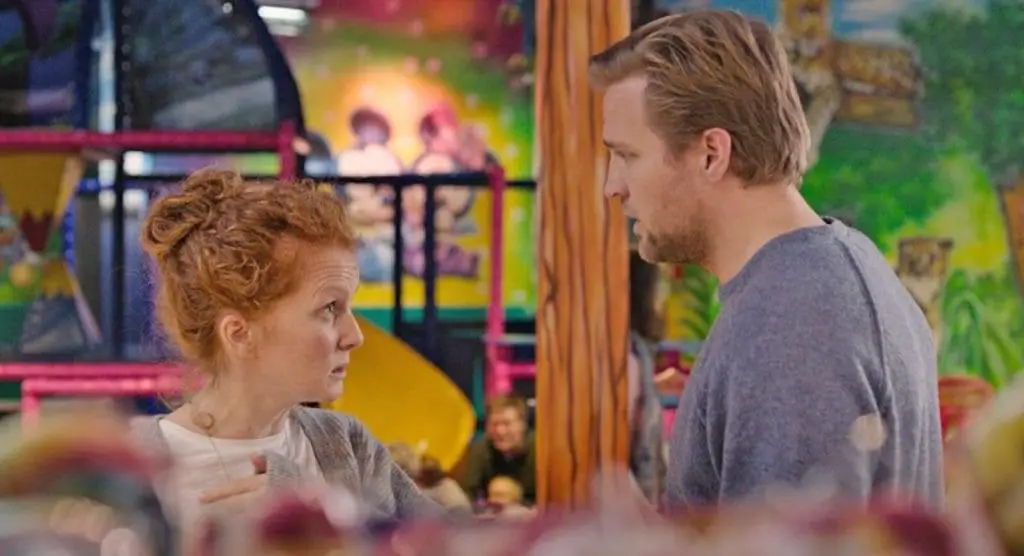
It’s never quite clear what’s going on in Casey Tebo’s sci-fi drama “The Captivus.” Somewhere in space, two men that have spent six years together on a spaceship are about to be separated – one is being dropped off on the base and another will continue his journey. We never know the details of the mission, why they were chosen for this mission, and what year it is, but it doesn’t matter. What matters is the relationship these men have formed over the years and how they relate to each other in the end. So, while unfamiliar gadgets crowd the frame and the men talk through annoyingly robotic helmets, the themes are instantly relate-able to present day relationships and situations.
So why, then, does Tebo insist on driving that point home with his twist, it-was-all-a-dream ending? The best science fiction understands that the play between future society and familiar themes is what keeps the viewer interested. The best science fiction trusts the viewer to make those connections between new and old. “The Captivus” shows a distrust of viewer intelligence when it makes that connection for us.
The film looks great (although a distracting, self-congratulatory coda at the end about “green products” puts a bad taste in my mouth), the acting is satisfactory (though a bit like pantomime when pared with constricting masks), and the dialogue is excellently written. But, overall, the ending ruins the high concept the film was going for, spelling the details out as though the film was an Aesop’s Fable.
This film was submitted for review through our Submission for Review system. If you have a film you’d like us to see, and we aren’t already looking into it on our own, you too can utilize this service.


Arthur Ratnik is an imbecile.
I agree, the ending was bunk. Jack White also didn’t try to save Rock And Roll.
The director made a ‘green film’ and was trying to show that you can make great films by re-using other people’s trash. This leaves a bad taste in your mouth? That seems a bit harsh.. ?